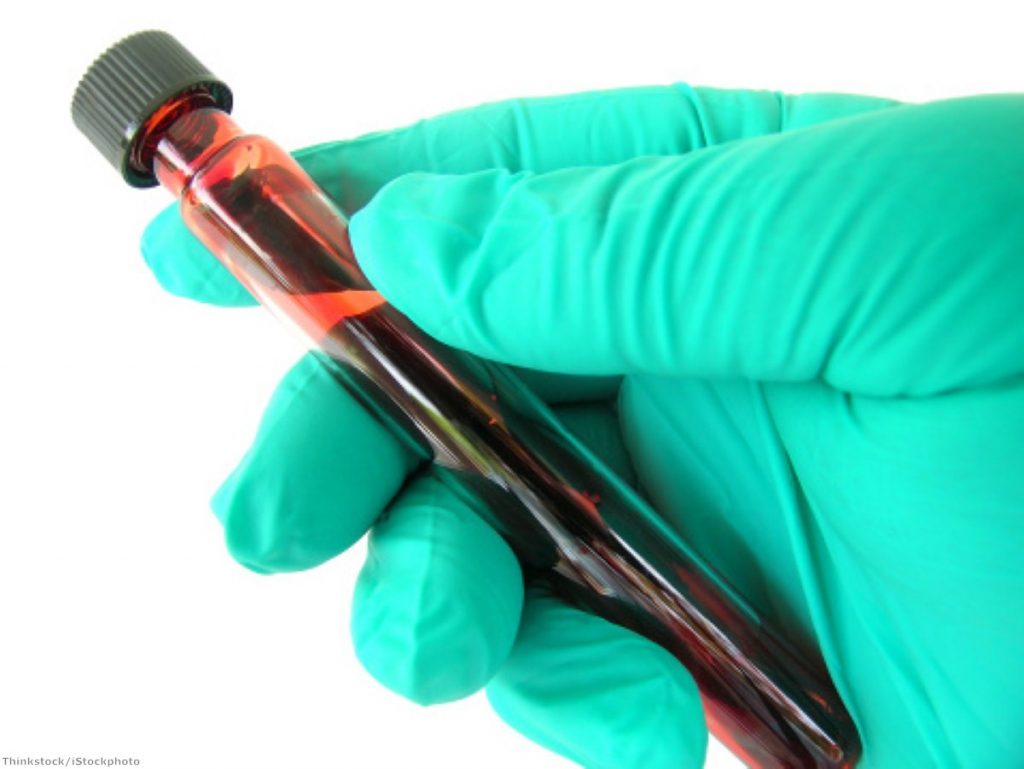Comment: The death which shows the human cost of Farage’s health tourism rhetoric
By Natalie Bloomer
Last week, just one day before Nigel Farage repeated his controversial comments about immigrants and HIV, an inquest was held into the death of Dalton Messam.
Dalton was a 44-year-old painter living in London. He was also an undocumented migrant. It was reported locally that he had been ill in the weeks leading up to his death but was so scared of being deported that he refused to seek medical assistance.
This is not a lone case. The charity Doctors of the World has warned that the hostile environment created by politicians and the media around the issue of immigration and the NHS can lead to tragic consequences.


The organisation runs a clinic in London to help undocumented migrants access healthcare. Phil Murwill, its manager, says the doctors and nurses who volunteer there often see people who are in desperate need of medical help but have been too afraid to access it.
"One lady turned up to see a GP and was extremely nervous. She was complaining of a typical cough and cold but at the end of the session, she plucked up the courage to ask the doctor about something else. She showed him a massive lump in her breast.
"We were extremely concerned and made sure she received an urgent referral. She was later diagnosed with breast cancer. But the day after her diagnosis she called me and said that she couldn't go through with the treatment because the hospital had asked to see her documents. She was terrified that she would be detained if she told them that she didn't have any."
Another case known to Murwill is that of a domestic worker. The lady had been in significant pain but her friends advised her not to seek medical attention because they thought she would be deported. She became so unwell that she could hardly move around. She still didn't get help. She was later found dead in her bed.
Murwill believes that cases such as this come off the back of the negative rhetoric about so-called "health tourism" and phrases like "the International Health Service" being used to describe the NHS. He says Doctors of the World understands the need for certain immigration policies but that it is dangerous to mix somebody's immigration status with a right to healthcare.
"We are one of the richest countries in the world and we are happy to demonise people purely for political gain. Every day in our clinic, we see the impact that this has on real people. It makes those who are vulnerable and sick feel as if they have no right to access treatment."
Rita Topalli (not her real name) entered the country illegally in 2006. Last year while living in Bedfordshire she began to suffer pain in her abdomen. She had never registered with a GP so she took some pain killers and hoped it would go away. It didn't. She says:
"To begin with the pain would come and go. But gradually it got worse, until every time I moved I was in agony. My cousin told me to go to the hospital but I refused. I thought that if I went, they would call the police and have me deported.
"In the end I had no choice, my cousin called an ambulance without me knowing. I was rushed to hospital and needed an operation. I had appendicitis, the doctors told me if I had left it any longer before going in, I would have been very seriously ill.
"I am so grateful to the doctors and nurses who helped me. I know people think I have no right to use the NHS but what could I do? I would have died if I didn't go to hospital. I am not a bad person, I am just trying to make a life for myself, the same as everyone else."
Earlier this month the Department of Health introduced new rules to discourage health tourism. Hospitals in England can now make higher charges for treatment of visitors from outside the EU. Non-EU citizens who are planning to settle in the UK, will also have to pay a 'health surcharge' on top of their visa fees.
But Murwill says that the term 'health tourism' is little more than a convenient catchphrase. He says:
"The idea that there are floods of people flying into the UK to use the NHS is absurd. If it does happen, it is on a minimal scale. All this talk has a real impact on patients. The tragic case of Dalton Messam is not the first of its kind and I am sure there must be many more around the UK that we will never hear about."
There are very few clinics in the UK like that run by Doctors of the World in London, so the true number of people who are going without necessary medical treatment because of fears of deportation may never be known.
Natalie Bloomer is a freelance journalist specialising in social affairs, poverty & family matters. Follow her on Twitter.
The opinions in Politics.co.uk's Comment and Analysis section are those of the author and are no reflection of the views of the website or its owners.









